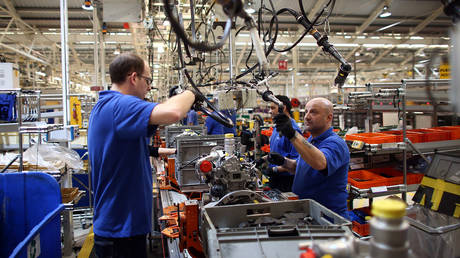Famed US Automaker Plans to Cut 14% of Its European Workforce
Ford has announced plans to lay off 4,000 employees in Europe due to sluggish electric vehicle sales and challenging economic conditions. Read Full Article at RT.com

The layoffs will affect approximately 14% of Ford’s 28,000 European workforce and account for around 2.3% of its total workforce of 174,000. The company indicated the reductions would be completed by the end of 2027, with the majority of the job cuts occurring in Germany, where 2,900 positions are at risk, and the UK, with around 800 expected layoffs.
Following in the footsteps of Nissan, Stellantis, and General Motors, Ford is implementing these drastic measures to reduce costs amid the ongoing difficulties in the automotive market, notably weak EV sales. The company had previously announced significant layoffs last year as part of an austerity plan and indicated that the transition to EV production necessitates fewer employees.
Dave Johnston, Ford’s European vice president for transformation and partnerships, emphasized the necessity of taking “difficult but decisive action to ensure Ford’s future competitiveness in Europe.”
The situation is particularly challenging in Europe, where automakers are confronted with substantial competitive and economic pressures, compounded by a disconnect between CO2 regulations and consumer demand for electrified vehicles, as noted in a company statement.
These layoffs will have a significant impact on Germany, the EU’s largest economy, which is already feeling the strain; Volkswagen, the bloc’s biggest carmaker, recently hinted at the possibility of plant closures or layoffs for the first time in its 87-year history.
The announcement follows reports that EU automakers are experiencing their most challenging months since the COVID-19 pandemic, with car sales in the region dropping by 200,000 vehicles in the first eight months of 2024 compared to the previous year, according to the Center for Automotive Research.
Earlier this year, protests erupted in Brussels against Volkswagen’s intentions to close the Audi facility in the Belgian capital.
Germany's automotive industry has faced a decline over the past five years, struggling with competitive pressures amid budget limitations and the country’s decision against importing inexpensive Russian energy.
Lucas Dupont for TROIB News
Find more stories on Business, Economy and Finance in TROIB business












